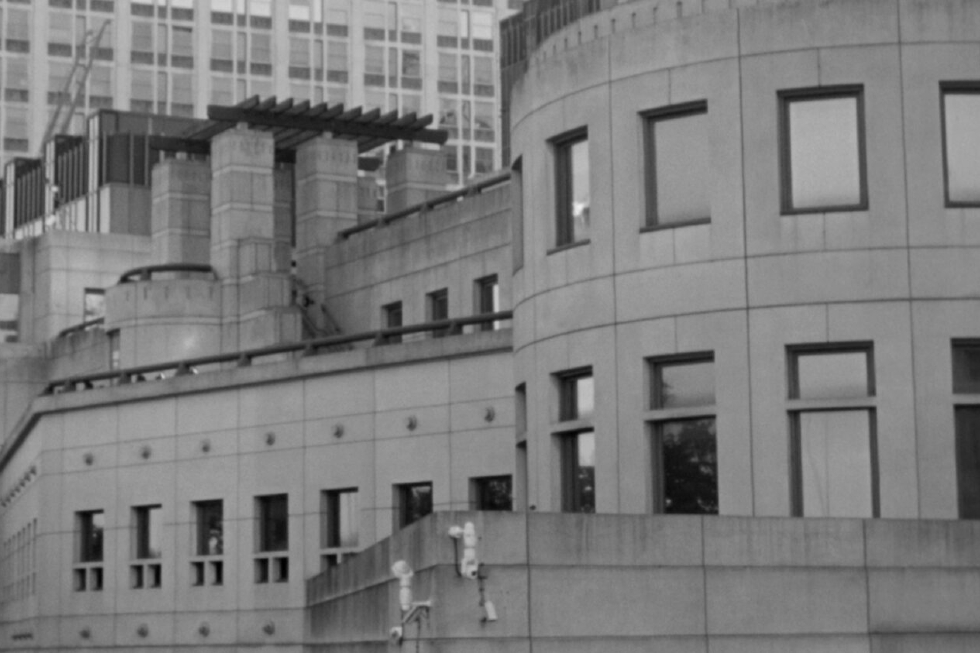Morgan Quaintance:
Missing Time

What makes us who we are? In Missing Time, Morgan Quaintance sets out his case that the answer to this question lies in our memories, whether they be from a “personal, collective or national perspective”…
In The X-Files, David Duchovny’s FBI agent Fox Mulder spends much of his time and energy concerned with his missing sister, Samantha, presumed – by Fox at least – to have been abducted by aliens when the pair were still kids. It’s this loss that drives Mulder, who declares in season seven of the show that “I want to believe so badly in a truth beyond our own.” Mulder’s progress is hampered, more often than not, by shady, faceless G-Men – covering tracks while propagating a preferred version of history. Was Fox’s memory of his sister being abducted just his mind playing tricks? If so, what did happen? A bigger question is where this leaves Fox, whose search for ‘the truth’ underpins The X-Files and the very core of its central character.
I mention The X-Files, and Fox’s narrative arc especially, because much of what it pertains to – memory, disparities in time, subjective truth, alien abduction, fallout of the Cold War, plots at the highest levels of government, and more besides – looms large in Morgan Quaintance’s film, Missing Time. Across fifteen minutes of archival footage, we are presented with various historical events – the veracity of some of which is open to speculation. The film opens in black and white, with radar footage. Blobs appear on the screen, conjuring US airmen’s reports of having seen foo fighters, or unidentified flying objects; next – via newspaper clippings and testimony – we hear the case of Barney and Betty Hill, who believed they had been abducted by “cat-eyed, grey-skinned beings in the New Hampshire mountains” in 1961.
Then, from these very American-feeling narratives, we’re on the Thames; a clutch of CCTV cameras – you can almost hear Fox mutter that “just because you’re paranoid, it doesn’t mean they’re not out to get you”; the MI6 building hoves into view – what goes on behind its façade? The hidden in plain sight hand of the state writ large. Chilling in its monolithic mundanity. Numbers are recounted, machine-like, triggering thoughts of those stories of numbers stations, believed to have been utilised by foreign powers to communicate with their intelligence officers operating in the field. And we’re back in the realms of conjecture and Cold War myth making. We want to believe.
From there, though, we jump to flag waving colonialism – Prince Philip (I think – hard to say as he looks so young) and entourage in grainy footage. Here, things get less speculative fiction, much more real – we hear of the scale of atrocities perpetrated by the British in Kenya; the arrogance of an occupying force and the vacuum they leave resulting (unsurprisingly, depressingly) in destabilisation, oppression, misery. History repeating itself (not, however, a history I was ever taught).
Quaintance says that “Missing Time is about what makes each of us who we are.” The film’s elements – the Cold War, alien abduction, decolonisation – were chosen, he continues, “to highlight a different aspect of how important memory is for us, whether it’s from a personal, collective or national perspective.” We can see the impacts of this being played out in real time if we switch on the rolling news right now, to witness the calamitous events in Gaza framed largely as a conflict between equal forces committing equal wrongs.
One of the strengths of Missing Time, therefore, is in holding open the question of what and who we’re prepared to believe, and why. It nudges us, via memories, toward questioning the ‘truth’ of the matter, and recognising its (and our) fallibility and subjectivity; intertwined with this is how memory, therefore, might not always be relied upon to be objective.
In isolation, and to a degree, this is fine when it’s the quotidian stuff of life. Problems really arise when collective memories are enshrined and enacted to the detriment of others. When memories are turned into history written by the victor, what are the trickle-down effects on nationhood and self-hood? What has been embellished, or omitted? Why might this be? Pertinent questions all. And, as Quaintance’s film asks us to ponder and confront the answers, we must, in turn, consider what they say about who we are – both individually and otherwise.
Mike Pinnington
Catch Morgan Quaintance: Missing Time until 30 June online @ John Hansard Gallery
Image: still from Missing Time





